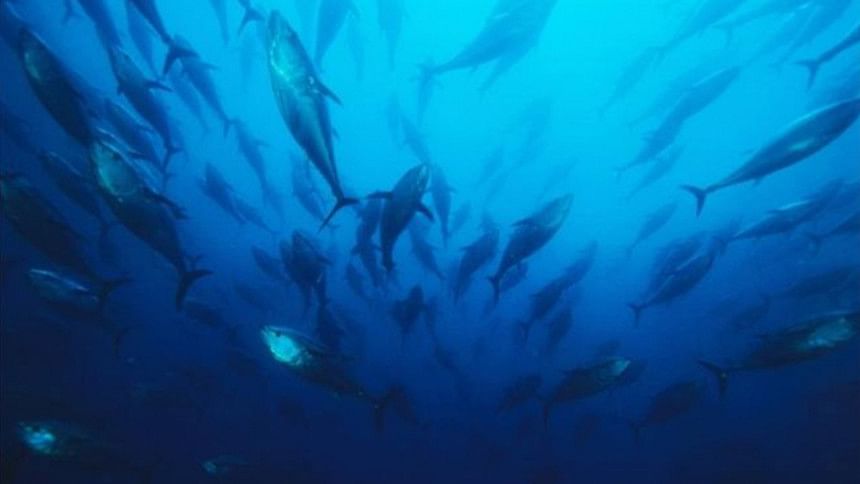Marine population halved since 1970: Report

Populations of marine mammals, birds, fish and reptiles have declined by 49% since 1970, a report says.
The study says some species people rely on for food are faring even worse, noting a 74% drop in the populations of tuna and mackerel.
In addition to human activity such as overfishing, the report also says climate change is having an impact.
The document was prepared by the World Wildlife Fund and the Zoological Society of London.
"Human activity has severely damaged the ocean by catching fish faster than they can reproduce while also destroying their nurseries," said Marco Lambertini, head of WWF International.
The report says that sea cucumbers - seen as a luxury food throughout Asia - have seen a significant fall in numbers, with a 98% in the Galapagos and 94% drop in the Red Sea over the past few years.
The study notes the decline of habitats - such as seagrass areas and mangrove cover - which are important for food and act as a nursery for many species.
Climate change has also played a role in the overall decline of marine populations.
The report says carbon dioxide is being absorbed into the oceans, making them more acidic, damaging a number of species.
The authors analysed more than 1,200 species of marine creatures in the past 45 years.

 For all latest news, follow The Daily Star's Google News channel.
For all latest news, follow The Daily Star's Google News channel. 



Comments